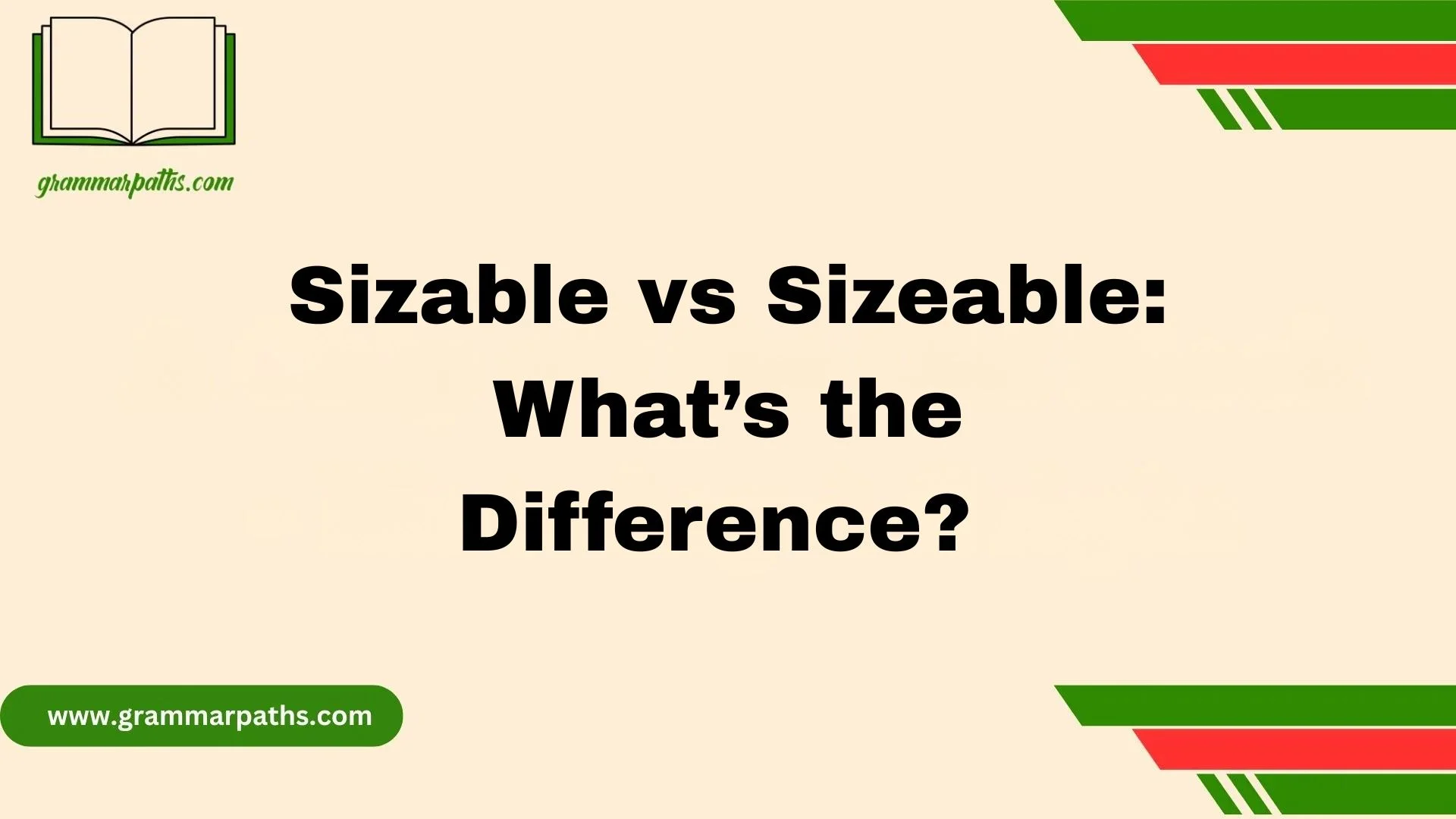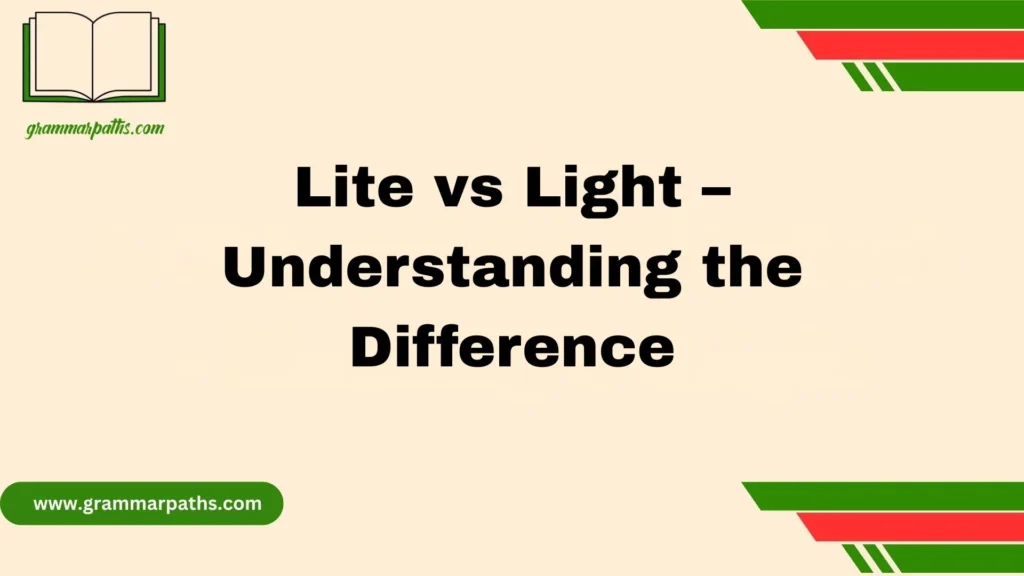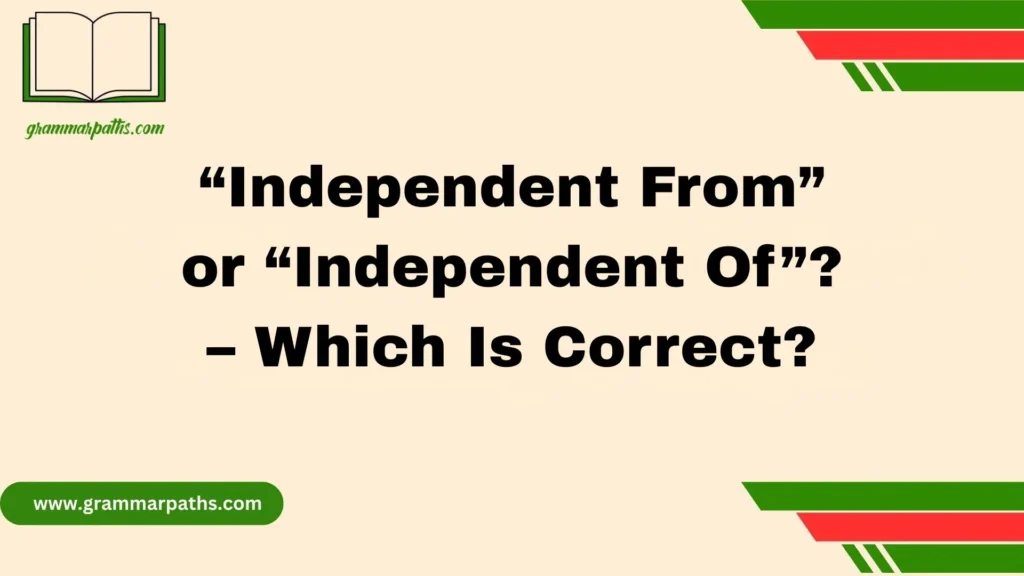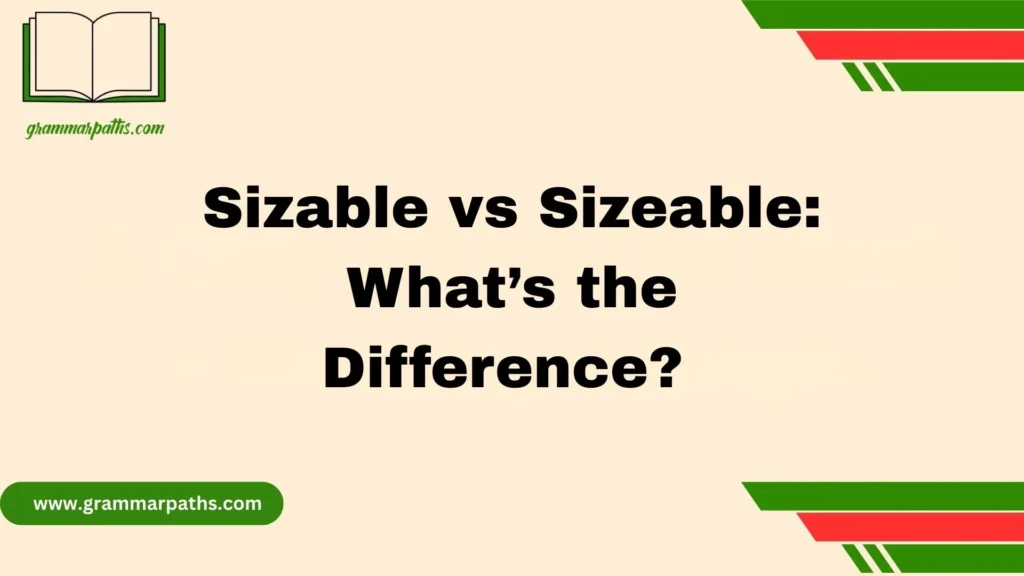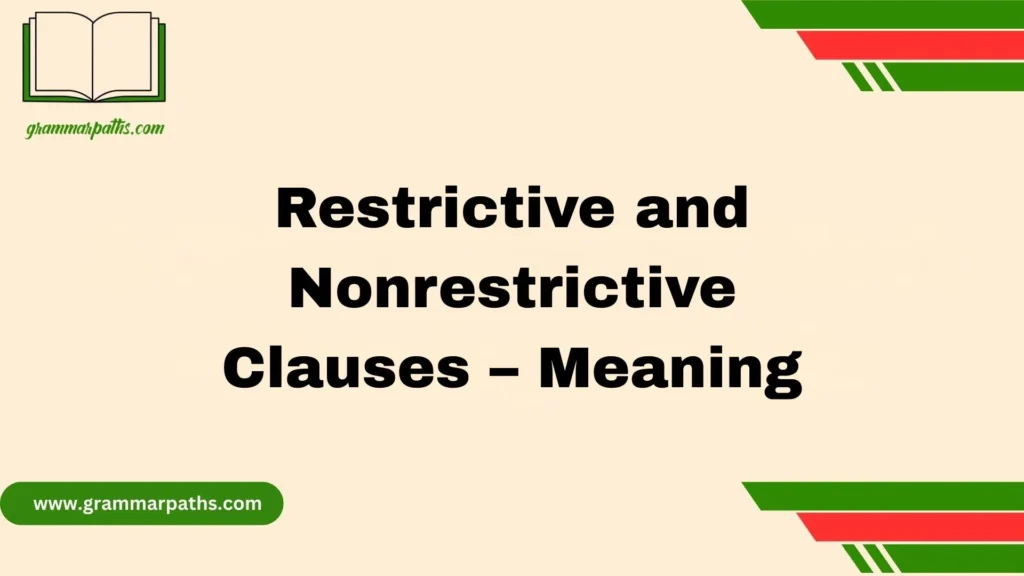When writing for international regions, I’ve often found that choosing between sizable and sizeable is more than a minor spelling difference—it’s a practical decision that affects credibility and how your audience connects with your content. In American English, sizable typically dominates in academic writing, business proposals, and professional documents, while British English maintains sizeable due to its historical resistance to spelling change. Though both variants mean the same, the wrong choice can easily confuse readers or undermine trust, especially in formal writing where flow and tone matter most.
As someone who’s worked with content marketers, editors, and publishing teams across diverse audiences. The correct spelling not only reflects regional understanding but also shapes reader awareness, communication, and overall language strategy. Whether crafting global marketing documents, designing training modules, or refining editing processes, I aim to optimize every line for accuracy, professional quality, and a polished reading experience that feels seamless across borders.
Why “Sizable vs Sizeable” Confuses So Many Writers
Let’s face it—English can be a quirky language. Two spellings, one meaning. If you’re an American writer, your spell-check likely suggests “sizable.” But if you’re reading an article from The Guardian, you’ll probably see “sizeable.”
The confusion happens because American and British English evolved separately, leading to spelling differences like:
- color vs. colour
- realize vs. realise
- traveler vs. traveller
And yes, sizable vs sizeable follows the same pattern.
Here’s the short answer:
In American English, the correct and preferred spelling is “sizable.”
In British English, the preferred spelling is “sizeable.”
Both mean the same thing: fairly large or considerable in amount, size, or extent.
But there’s much more to the story.
Understanding the Word “Sizable”
In American English, the adjective sizable describes something large, significant, or considerable.
Definition (Merriam-Webster):
Sizable: fairly large, considerable in amount or extent.
Examples:
- The company reported a sizable profit in the third quarter.
- She donated a sizable amount to charity.
- There’s a sizable audience for true crime podcasts these days.
Synonyms:
- Large
- Substantial
- Ample
- Significant
- Considerable
The word feels practical, businesslike, and modern—qualities that fit American writing style perfectly.
The Role of the Suffix “-able”
The suffix “-able” is one of English’s most productive endings. It attaches to verbs or nouns to form adjectives that mean “capable of being.”
Examples include:
- Enjoy → Enjoyable (“capable of being enjoyed”)
- Read → Readable (“able to be read”)
- Adapt → Adaptable (“able to be adapted”)
When “size” meets “-able,” we get “sizable” — something capable of being measured by size or, more simply, large enough to notice.
This linguistic formation is typical of American English, which favors streamlined spellings and consistent suffix use.
The Origin of “Sizable” and “Sizeable”
The word sizable (and its British cousin, sizeable) first appeared in print in the early 19th century.
It comes from the noun “size”, which itself evolved from the Middle French assise meaning “a seat, settlement, or measure.”
When the English language underwent spelling simplifications in America, Noah Webster—the father of American lexicography—pushed for simpler spellings:
- “color” instead of “colour”
- “honor” instead of “honour”
- “sizable” instead of “sizeable”
Webster’s reforms took root, and over time, “sizable” became the standard American form, while the British stuck to “sizeable.”
This distinction became part of the cultural and linguistic identity of each region.
American vs. British English: The Real Difference
At its core, the only real difference between sizable and sizeable is spelling. The meaning, pronunciation, and usage are identical.
Here’s a simple breakdown:
| Variant | Region | Common Usage | Example Sentence |
| Sizable | United States | Dominant spelling | The company made a sizable profit this year. |
| Sizeable | United Kingdom | Traditional British spelling | The team received a sizeable grant from the government. |
In short:
- Use “sizable” in the U.S.
- Use “sizeable” in the U.K.
It’s that simple—but there’s fascinating data to back it up.
Real Usage Data: What the Numbers Show
Data from Google Ngram Viewer reveals a clear trend:
- In American English, “sizable” overwhelmingly dominates.
- In British English, “sizeable” remains more common, though both appear.
According to the Corpus of Contemporary American English (COCA):
- “Sizable” appears more than 10 times as often as “sizeable.”
Meanwhile, in the British National Corpus (BNC):
- “Sizeable” leads by a significant margin.
Here’s a quick comparison:
| Source | Region | “Sizable” Frequency | “Sizeable” Frequency |
| COCA (USA) | American | ~8,500 | ~700 |
| BNC (UK) | British | ~1,200 | ~4,900 |
This linguistic divide mirrors others like “defense/defence” and “theater/theatre.”
“Sizable” in Modern American Usage
In modern American writing, “sizable” has a polished, professional feel. It’s the go-to term in journalism, business, and academia.
Examples in American Media:
- The New York Times: “A sizable number of voters turned out despite the rain.”
- Forbes: “The startup attracted a sizable investment from Silicon Valley.”
- The Wall Street Journal: “Executives received sizable bonuses after record profits.”
Common Collocations:
- Sizable audience
- Sizable investment
- Sizable market share
- Sizable donation
- Sizable portion
Each conveys measurable magnitude—big enough to notice, but not excessively large.
“Sizeable” in British English
Across the Atlantic, “sizeable” remains the norm. British English tends to retain older spellings—often with an extra “e” for words ending in “-able.”
Examples in British Media:
- BBC News: “A sizeable minority of voters opposed the measure.”
- The Guardian: “The fund raised a sizeable amount for disaster relief.”
- The Telegraph: “He inherited a sizeable estate in the countryside.”
British writing values tradition, and that includes spelling. Adding the extra “e” doesn’t change pronunciation—it simply maintains a historical convention.
American Style Guides and Dictionaries on “Sizable”
If you’re writing for an American audience, style guides are crystal clear:
Always use “sizable.”
Here’s what major authorities say:
| Source | Recommendation | Notes |
| Merriam-Webster | ✅ Sizable | Only lists “sizable” as the main entry. |
| AP Stylebook | ✅ Sizable | Follows American spelling rules. |
| Chicago Manual of Style | ✅ Sizable | Advises using American English conventions. |
| Cambridge Dictionary (US) | ✅ Sizable | Marks “sizeable” as chiefly British. |
So, if you’re writing for US publications, academic work, or professional reports, the safe bet is always “sizable.”
Common Mistakes and How to Avoid Them
Even native speakers slip up occasionally. Here are some common pitfalls and how to fix them.
Mistake 1: Using “sizeable” in American content
❌ The company posted a sizeable profit.
✅ The company posted a sizable profit.
Mistake 2: Mixing spellings in one document
Keep your writing consistent. Choose one style—American or British—and stick with it.
Mistake 3: Overusing synonyms like “large” or “huge”
“Sizable” adds nuance—it suggests not just large, but notably significant.
Tip:
If you’re writing for a U.S. audience—keep it sizable and simple.
Mnemonics & Memory Tricks
If you struggle to remember which is which, try this:
- Sizable = Shorter = Simplified = American
- Sizeable = Extra ‘e’ = English (British)
Quick Visual Aid:
| Word | Region | Trick |
| Sizable | 🇺🇸 American English | “Americans like to keep things short.” |
| Sizeable | 🇬🇧 British English | “British spelling loves an extra letter.” |
Or think of it this way:
The e in “sizeable” stands for England.
Fun Facts: How Spelling Reflects Cultural Identity
Language reflects culture, and spelling is part of that identity. The American preference for simplified forms—like “sizable”—goes back to a national desire for linguistic independence after the Revolutionary War.
Noah Webster famously wrote:
“It is not only important, but necessary, that we should have a system of our own, in language as well as government.”
That mindset led to American spellings like:
- center (vs. centre)
- defense (vs. defence)
- sizable (vs. sizeable)
So when you use “sizable,” you’re not just following grammar rules—you’re echoing centuries of American linguistic evolution.
Case Study: American vs. British Publications
Let’s look at real examples to see the difference in action.
| Publication | Country | Sentence Example | Spelling Used |
| The Wall Street Journal | USA | “A sizable number of new businesses emerged after the pandemic.” | Sizable |
| The Guardian | UK | “The initiative received a sizeable grant from the council.” | Sizeable |
| Forbes | USA | “Investors saw a sizable return on their initial funding.” | Sizable |
| BBC News | UK | “A sizeable crowd gathered outside Parliament.” | Sizeable |
Analysis:
Both spellings carry the same meaning. But professional editors follow their regional style guides to maintain consistency with their audience’s expectations.
Quick Reference Table: When to Use Each Form
| Context | Recommended Form | Example |
| American audience | Sizable | The company made a sizable investment. |
| British audience | Sizeable | The charity received a sizeable donation. |
| International publication | Sizable | The project achieved a sizable reach. |
| Academic writing (US) | Sizable | A sizable proportion of respondents agreed. |
If your target readers are primarily in the United States, use “sizable.”
Interesting Note: Pronunciation
Here’s the fun part—they sound exactly the same.
Both are pronounced as /ˈsaɪzəbəl/.
So, while the spelling differs, the way you say it doesn’t.
This is why many people don’t realize there’s a difference until they see it in writing.
Real-World Examples of “Sizable” in Context
Here are a few examples showing how sizable adds weight and precision to modern writing:
- Business: “The startup attracted a sizable market share within six months.”
- Politics: “A sizable portion of voters remain undecided.”
- Science: “Researchers received a sizable grant to study climate change.”
- Sports: “A sizable crowd filled the stadium for the season opener.”
In every case, the word adds impact—stronger than “big,” but not as exaggerated as “enormous.”
Conclusion
Choosing between sizable and sizeable may seem like a small detail, but it’s a choice that reflects your regional understanding and attention to professional quality. Whether you’re writing for American or British English readers, using the correct spelling builds trust, maintains reading flow, and supports clear communication across global marketing or academic contexts. In short, this subtle spelling difference carries a practical impact far greater than it appears.
FAQs
Q1. Which spelling is correct – sizable or sizeable?
Both are correct, but sizable is preferred in American English, while sizeable is standard in British English.
Q2. Does using the wrong version affect credibility?
Yes. Using the wrong spelling can slightly undermine credibility, especially in professional writing or formal documents.
Q3. Why do both versions exist?
They exist due to regional language preferences. British English often resists spelling change, while American English simplifies many forms.
Q4. Which version should I use for SEO and global audiences?
Use sizable for American audiences and sizeable for British or international readers—keeping your content consistent with your target region.
Q5. How can I decide which to use in mixed audiences?
Choose based on your content strategy. If your documents reach global readers, consistency and clear communication matter more than strict spelling rules.
References and Further Reading
- Merriam-Webster Dictionary – Sizable Definition
- Cambridge Dictionary – Sizeable vs. Sizable
- Oxford English Dictionary (OED)
- Google Ngram Viewer – Usage Trends
- AP Stylebook – American English Spelling Guidelines

Mia Rose is the passionate writer and founder of GrammarPaths.com, a resource dedicated to helping learners master English grammar, idioms, and writing skills with ease. With a deep love for language and years of experience in teaching and content creation, Mia simplifies complex grammar rules into clear, practical guides that readers can instantly apply.
